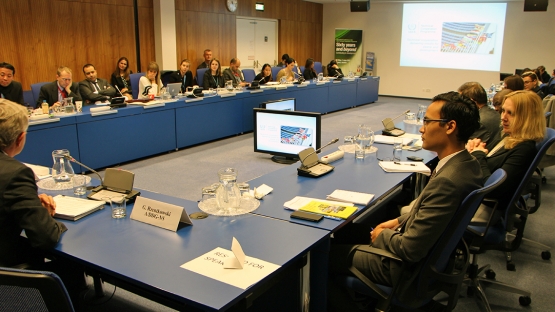The seventh annual Seminar on Technical Cooperation for Diplomats took place on 6 October 2016, and brought together almost 40 delegates from 25 Permanent Missions in Vienna. The Seminar, held each year at IAEA headquarters, introduces new diplomatic staff to the IAEA’s technical cooperation (TC) programme.
“The Seminar is designed to strengthen an open dialogue between Member States and the Secretariat. An active, engaged Permanent Mission invariably contributes to a stronger and more focused national TC programme.” said Dazhu Yang, IAEA Deputy Director General and Head of the Department of Technical Cooperation, in his opening address.
In the course of the day-long Seminar, senior staff from the IAEA’s Department of Technical Cooperation and the Departments and offices, which are most closely involved in the formulation and implementation of the technical cooperation programme, provided an overview of the various building blocks of the TC programme. “To deliver services to our Member States, we have to bring together expertise from right across the house in seamless, integrated technical cooperation projects,” said Jean Pierre Cayol, Programme Coordinator of the Department of Nuclear Sciences and Applications.
The Seminar is designed to strengthen an open dialogue between Member States and the Secretariat. An active, engaged Permanent Mission invariably contributes to a stronger and more focused national TC programme.





